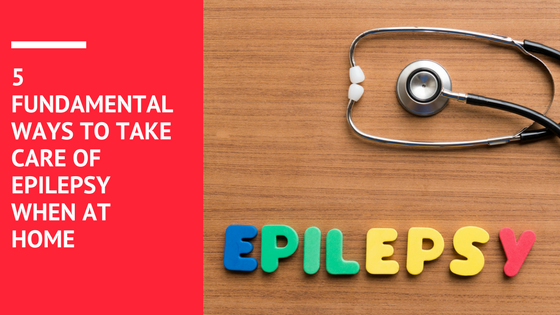Epilepsy is one of the most common neurological disorders and it affects people of all ages. It’s an ailment that needs proper tending as it can cause injuries and life-threatening emergencies. It’s estimated that around 1 million suffer from Epilepsy in the Philippines.
In line with National Epilepsy Awareness Month, here are health care management tips you can do at home:
Get enough Zs
Do you know why sleep deprivation is a huge no-no for people dealing with Epilepsy? It’s because seizures are very sensitive to sleep patterns. It can even increase the intensity and prolong the length of the fits. Around 7-9 hours of sleep every night to significantly reduces the risk of epileptic seizures.
Educate the people around you about the disorder
Have you heard that epilepsy is a mental disorder? Or that when a patient has seizures, you should put a spoon in his mouth so that he won’t swallow his tongue? These are all myths that can lead to a misconstrued view of epilepsy and can actually jeopardize epileptic patients.
First off, epilepsy is not caused by a mental illness or mental retardation. It is, rather, a neurological disorder. Severe seizures, however, can cause brain damage, but most of them do not seem to have a detrimental effect on the brain.
Second, obstructing a person’s mouth with a spoon can cause lacerations inside the mouth. In situations like this, it is vital to raise awareness to get people to respond the right way.
Be very careful when dealing with meds
According to WebMD, to get the most benefit from medicines, you need to consistently take the right dose of the right medicine at the right time. Research your meds well, and be mindful of your food combinations. There may be ingredients, like grapefruit for example, in your meds that don’t react well with epilepsy medications.
Taking care of your health at home is a huge undertaking but in addition to your health care needs, make sure that you entrust your sensitive condition to a leading provider here in the Philippines.

Remove sharp objects that are within reach
Some people with epilepsy experience recurring seizures. Along with this comes other symptoms like rapid jerking movements, intermittent fainting spells, and sudden falls. To prevent injury, move nearby objects that are sharp out of the way. Secure them in a hidden place to stave off cuts, bruises, and other physical traumas.
Healthy Diet & Exercise
A lot of epileptic patients often fear exercise because they believe that it can be a trigger for the seizures. Don’t fret, physical activity can actually be beneficial. Exercising doesn’t have to be inside a gym. You can do a couple of light exercises in the four corners of your room. Start off with warm up exercises like stretching every morning. Follow it up by walking around your house. You can also do yoga. There is a plethora of activities to find online. Improving overall health and wellbeing in this way can help reduce seizures and the impact of epilepsy for some people.
These physical exercises should be coupled with balanced meals. Avoid refined carbohydrates, monosodium glutamate, and Gingko nuts among many others. Ensure your body with a steady energy level by consuming oats, beans, green veggies, apples, and pears.
Getting the right kind of health care at home is one step to raise awareness on Epilepsy in the Philippines. Celebrate the month by promoting its treatments and management tips!
